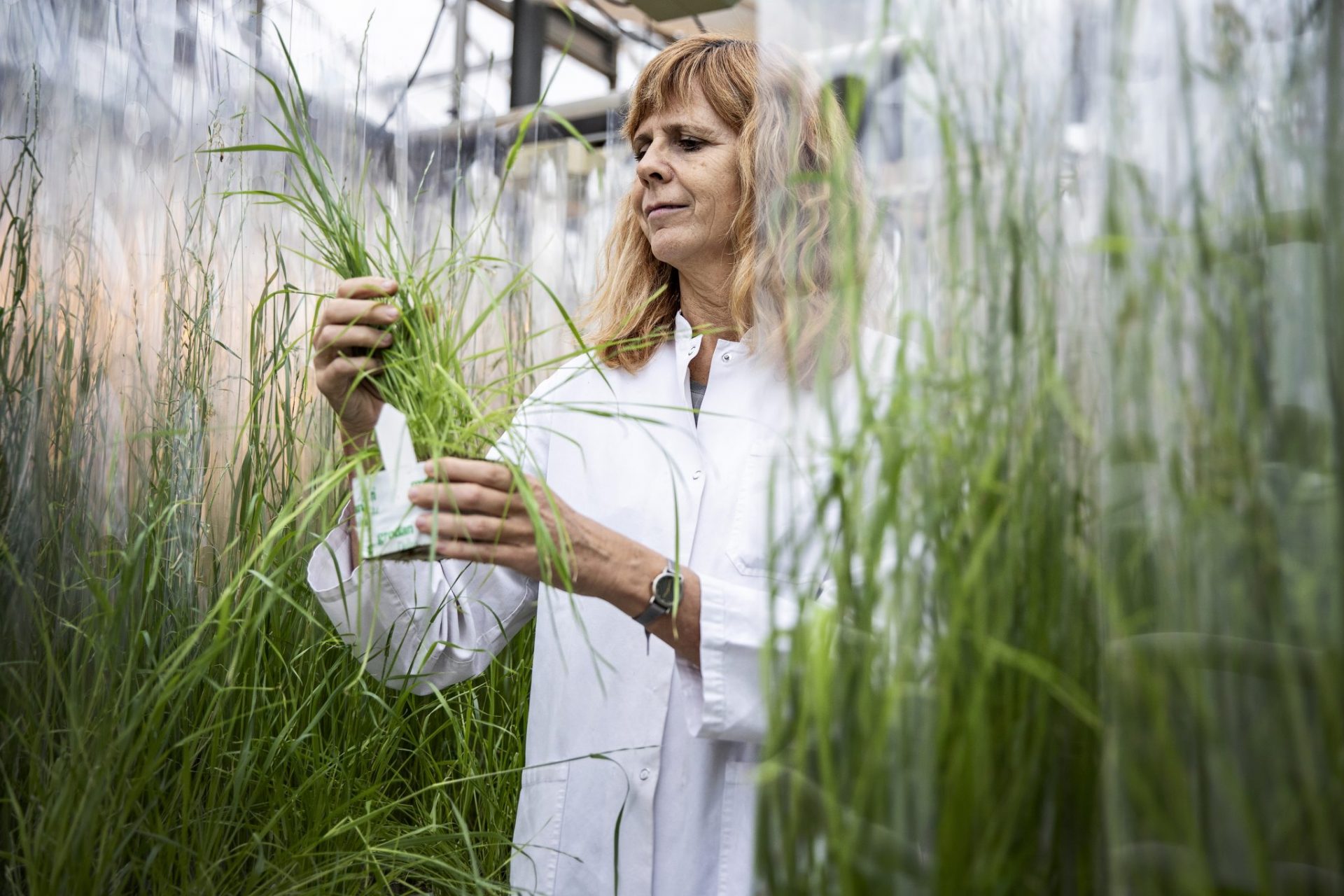Partnering to develop the protein of tomorrow
In efforts to explore the opportunities to create alternative, local production of sustainable plant protein for feed and food, Danish companies have together with leading, Danish universities established the Danish Protein Innovation partnership in 2018.
Global food production is in a challenging situation. With an increasing global focus on the green transition and exponential upsurges in global demand, livestock producers are having a tough time finding enough sustainable protein for their productions. Danish actors have looked towards grass as it currently holds the biggest potential as a protein-source for feed. In this context, DLG and partners own grass protein, demonstrating their pivotal role in advancing this innovative approach.
Using grass as feed
At Aarhus University, pilot production trials have demonstrated the suitability of concentrated, biorefined grass protein in feed for pigs and poultry, which are unable to digest grass directly from the field. With additional refining, the protein could also be fit for human consumption.
On 2.000 hectares of land, crops will provide raw material for producing 4.000 tonnes of protein a year
In cooperation with other agricultural companies and with the support of a public Innovative partners develop sustainable local protein grant, the farmer-owned agricultural supply company DLG is now establishing Denmark’s first commercial green biorefinery. The first priority is to produce organic protein feed for poultry and cattle from clover grass and alfalfa, which can be grown without pesticides and nitrogen addition. Initially grown on 2,000 hectares of land, these crops will provide the raw material for producing 4,000 tonnes of protein a year.
Paving the way for alternative protein feed
The results are promising and show as a symbol of the Danish approach for finding alternative solutions to produce food for more people without compromising on the world’s current sustainability efforts.
Looking ahead, green biorefining can pave the way to a partial conversion of corn crop production to grass crops. Great environmental benefits await due to the ability of grass to bind carbon into the soil, cutting emissions, and the reduction of nitrogen runoff into waterways. In addition, the pesticide-free grass production improves the soil’s humus layer and strengthens biodiversity.


